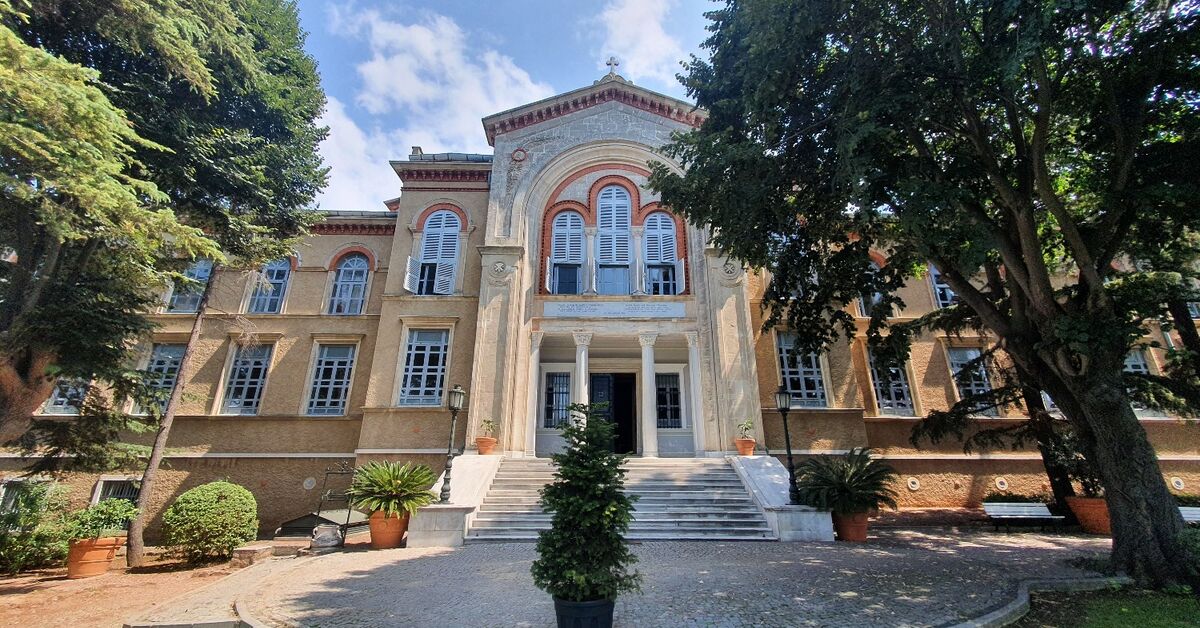Will Turkey’s long-closed Halki Seminary finally reopen for class?
When Presidents Recep Tayyip Erdogan of Turkey and Donald Trump of the United States held talks in September, few expected that one of Turkey’s most symbolically fraught Greek Orthodox landmarks, the Halki Seminary, would enter the conversation. Within hours of the meeting, Erdogan confirmed that reopening the seminary was “on the table” in a remark US and Greek Orthodox officials hailed as a long-awaited sign of progress.
Perched on the pine-covered slopes of Heybeliada, one of the Princes’ Islands, the school has been shuttered since 1971, when Turkey’s Constitutional Court ruled that all private higher education institutions must be affiliated with the state.
Over the years, successive leaders have urged Ankara to reopen it. US President Bill Clinton visited in 1999, President Barack Obama made calls during his presidency and Greek Prime Minister Alexis Tsipras visited in 2019. More recently, Education Minister Ziya Selcuk visited the site with Patriarch Bartholomew, signaling that Ankara was again considering the seminary’s status.
For Halim Bulutoglu, one of the most determined defenders of the islands’ cultural heritage, the news revived familiar hopes. “We have waited so many times for this,” he told Al-Monitor. “Especially back in 2004-2005, when Turkey started its EU accession talks. Each time, we believed it was close.”
This time, however, optimism may rest on firmer ground. Kamil Cengiz Firat, a former Turkish ambassador who served in Poland and at the EU, said the current window between Erdogan’s Washington visit and a papal pilgrimage to Turkey at the end of November could be “a golden opportunity, if all sides play their cards right.”
“If Athens moves on Western Thrace, allowing Muslims to elect their muftis, improving Turkish-language education, restoring foundation properties, Ankara will have more political space to act on Halki,” he said.
He added that Pope Leo’s visit to Iznik, marking the 1700th anniversary of the Council of Nicaea, “could lend moral weight to ongoing negotiations, especially if framed as a gesture toward broader interfaith reconciliation.”
Greek Prime Minister Alexis Tsipras and Greek Orthodox Patriarch Bartholomew I attend Mass at the Agia Triada Church at the Theological School of Halki, Heybeliada Island, Istanbul, Feb. 6, 2019. (Photo by Burak Kara/Getty Images)
Symbol of harmony
For Bulutoglu, the seminary’s bridge-building role has endured even during the closure. One of his most memorable moments of the seminary was in August 2014. As head of the Adalar Foundation, a civil society group preserving the tangible and intangible multicultural heritage of the Princes’ Islands, he helped organize a concert in its garden, where choirs from six faiths sang beneath the island’s evening sky to an audience of 500.
“That concert carried a message,” he said. “Even when its classes were silent, Halki still had a role: bringing voices together across a symbolic divide.”
That night, acting Prior Father Samuel Efes told the audience, “The doors of Halki will remain open for cultural and artistic work in the future.” The promise has been kept. Over the past decade, the Patriarchate has permitted cultural events on the grounds. The vast gardens are open to the public, allowing visitors to walk among the cypress trees and look up at the hilltop monastery that once trained generations of Orthodox clergy. Access to the library and upper floors remains restricted, though guided tours include the main hall and richly designed chapel.
Built on faith and ruins
The seminary crowns the site of the Holy Trinity Monastery, founded by Patriarch Photios I in the ninth century. Patriarch Germanos IV rebuilt it as a theological school in 1844, aiming to revitalize Orthodox learning within the Ottoman Empire.
The original complex collapsed in the 1894 earthquake. Architect Periklis Fotiadis rebuilt it two years later in a restrained neoclassical style with wide marble staircases and long corridors still seen today, and a library of more than 120,000 volumes that drew students from Smyrna to New York.
Halki’s classrooms stayed open through wars and revolutions until 1971, when the court’s education ruling forced its closure. Officially, it was a legal technicality; politically, the decision reflected Cold War nationalism, Cyprus tensions and Ankara’s suspicion of the Patriarchate as a foreign body.
The Chapel of Holy Trinity, Feb. 6, 2019 (Photo by Burak Kara/Getty Images)
The shutdown severed a tradition that had produced 930 clergymen and counted 12 patriarchs including Bartholomew, leaving the Orthodox Church unable to train clergy within Turkey.
After Erdogan’s latest remarks, nationalist voices again pushed back. Umit Ozdag, leader of the Victory Party, accused the government of yielding to US pressure. “Reopening the seminary as a higher-education institution independent of the Turkish board of higher education would mark the first step toward recognizing the Ecumenical Patriarchate,” he warned on X. “Then will come the merging of Greek foundations, foreign funding, and construction projects. We are losing the gains of our War of Independence.”
Bulutoglu shrugs. “The idea that opening the school would create a second Vatican is ridiculous,” he said. “This is a theology school, not a state.”
Island lessons
After the Education Ministry inspected the site earlier this year, Patriarch Bartholomew voiced hope that it would again welcome students “soon.”
“The classrooms look as if they were left yesterday,” Bulutoglu said. “It’s not decay, it’s memory waiting to wake up.”
Heybeliada, the second-largest of the Princes’ Islands, has long mirrored the spirit of coexistence in Istanbul — Muslim, Greek, Armenian and Jewish families sharing a compact world of ferries, pine groves and gossip.
“The islands are different,” said Bulutoglu. “We have different communities here; we feel enriched by that. The polarization on faith, identity — if we take a step to end it, it would be Turkey’s gain, not its loss.”
Firat, who spent part of his childhood on the islands, agrees. “Halki isn’t a foreign enclave; it’s part of Turkey’s own plural story,” he said. “Reopening it, with sensible safeguards, would strengthen the republic’s credibility, not weaken it.”



